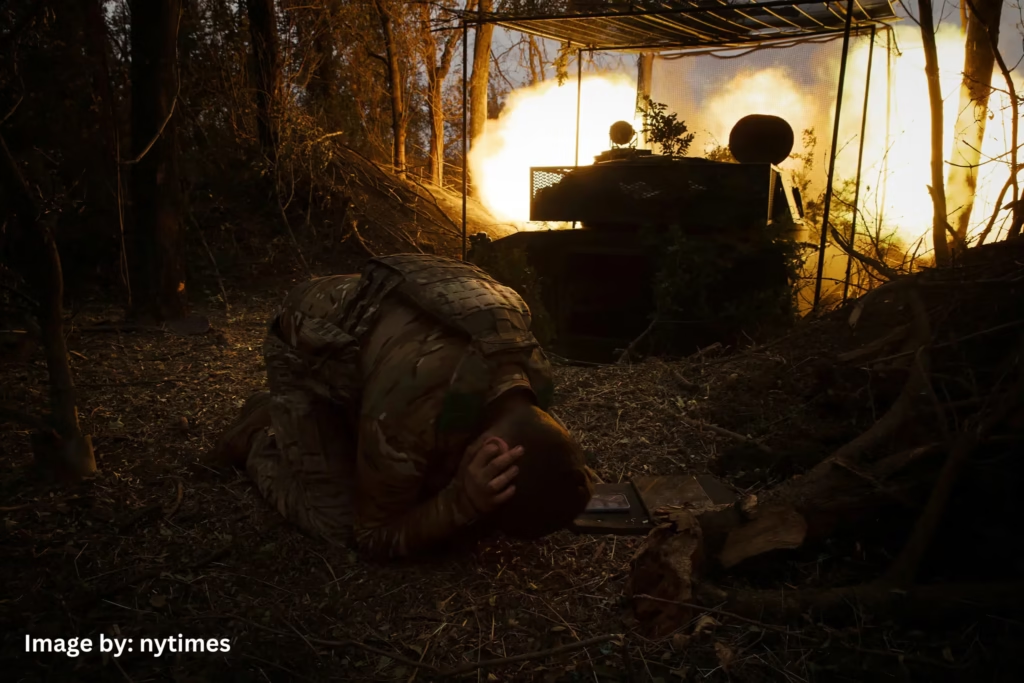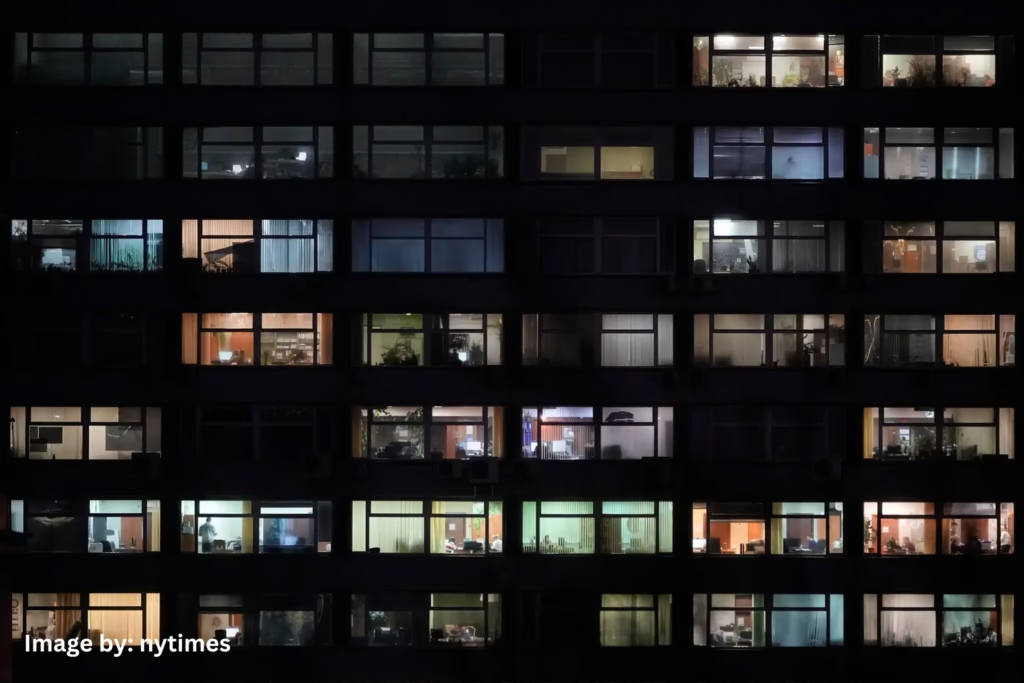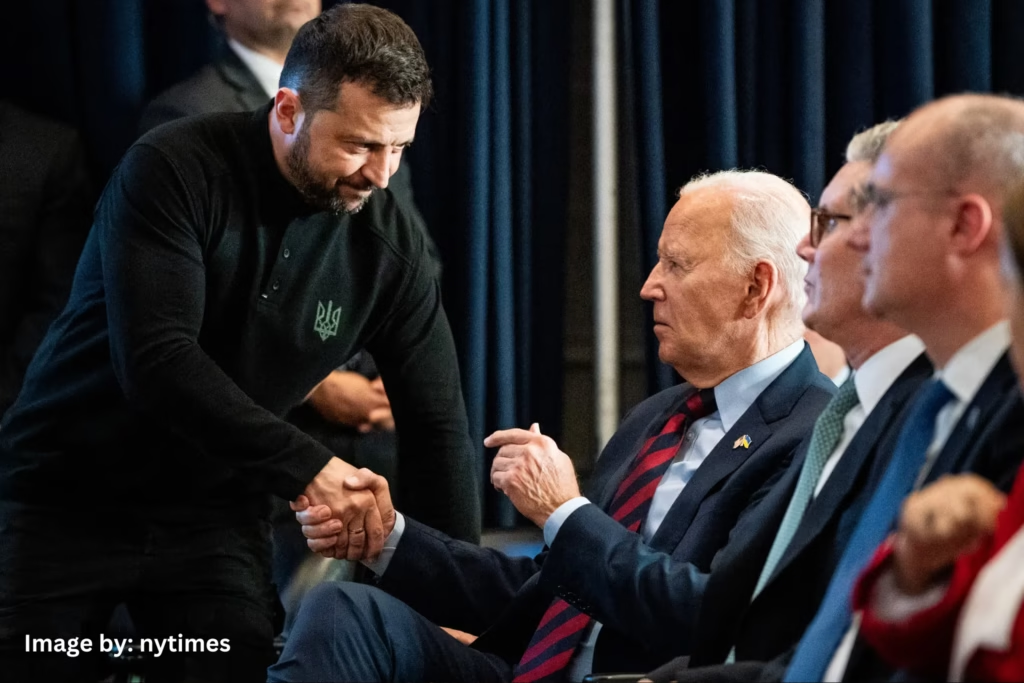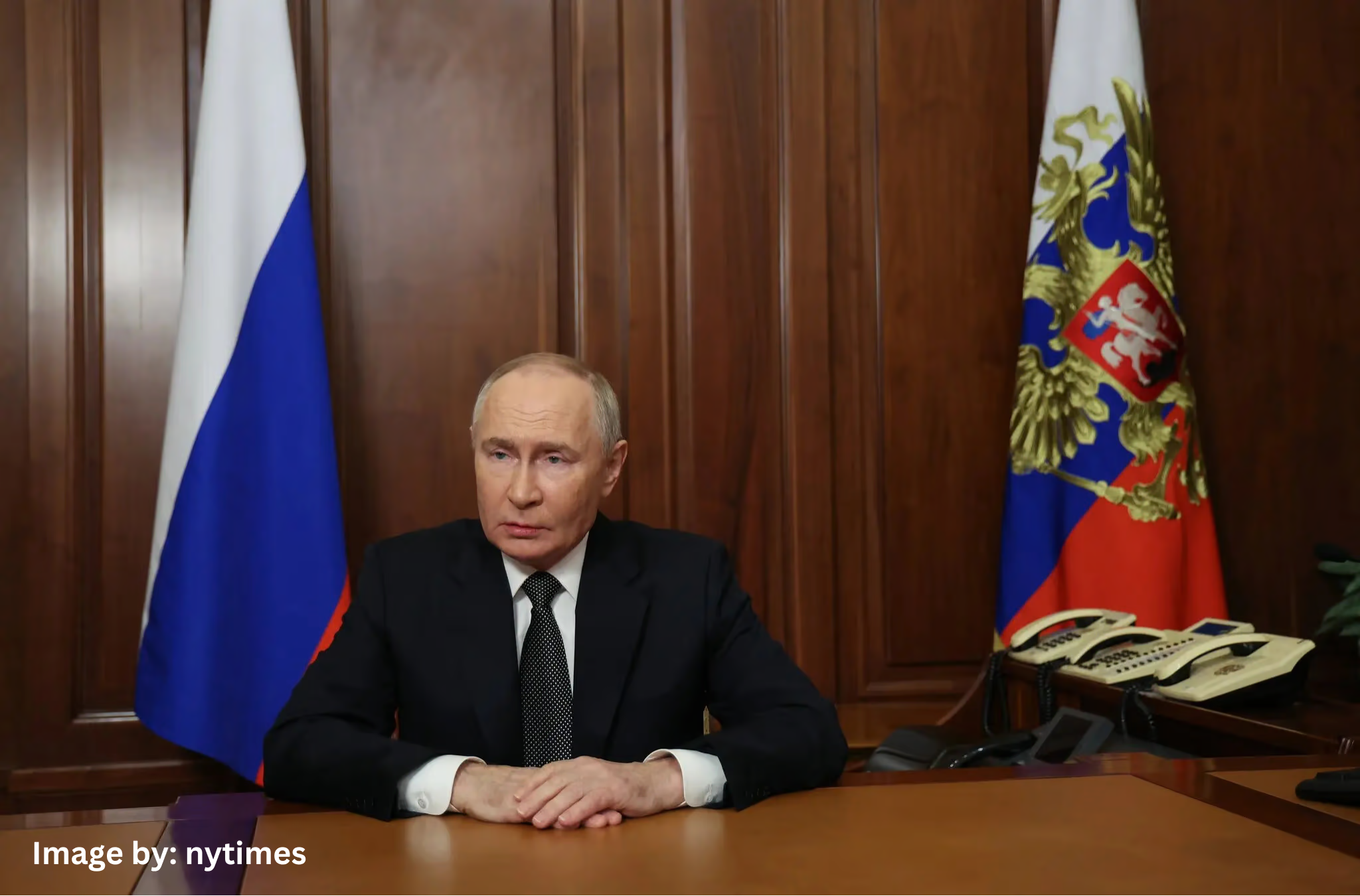While support for Vladimir V. Putin’s threats echoed in pro-war venues, some Russians reacted with worry, gallows humor, and apathy to the suggestions of striking the West and using nuclear weapons.
The day after President Vladimir V. Putin of Russia raised the stakes in tensions with the West, many Russians woke up on Friday feeling anxious that the prospect of nuclear war had come slightly closer.
But in Russia’s tightly controlled news media and pro-government social media channels, there were only fawning reactions to the Russian leaders’ new round of saber-rattling and promises that Moscow’s enemies would “tremble in fear.”
Mr. Putin announced late Thursday that Russia had launched a new intermediate-range ballistic missile at Ukraine, in response to Kyiv’s first use of U.S. missiles. British missiles against targets inside Russia this week. Russia, he said, also has the right to strike nations “that permit their weapons to be used against our facilities.”
In the West, Thursday’s launch of the nuclear-capable Oresnik missile and Mr. Putin’s comments were perceived as a threat against Ukraine and its allies and drew widespread condemnation as an escalation. In Russia, the incidents were billed as an important sign that the Kremlin would enforce its red lines, with the implication that enforcement could include nuclear weapons.
“This topic used to be a taboo in Russia,” said Denis Volkov, the director of the Levada Centre, one of the few independent pollsters in Russia. “Within the elites, the consensus is shifting toward talking about it much more openly, and that Russia should make the West understand that it is serious.”
Russians have been largely desensitized to the Kremlin’s frequent bellicose statements and claims of being sieged by the West since Russia invaded Ukraine in February 2022. But there are also signs that more Russians have come to accept and even cheer on Mr. Putin’s hawkish posture, accompanied by a steady stream of government and media claims that Ukraine and the West are the aggressors.

An increasing number of Russians favor the initiation of peace talks, too, but the number of people who accept the use of nuclear weapons has risen slightly, polls suggest.
Though almost half the Russians surveyed in a poll this year found the use of nuclear weapons “unacceptable,” there has been a slight increase since last year in the number who consider it acceptable, to 34 percent, Mr. Volkov said. He did not discount that after Putin’s latest speech and the breathless media coverage that followed, that number could rise further.
Support for nuclear force dovetails with support for the Kremlin. Volkov said. But for many opposition-minded Russians, the use of a nuclear-enabled missile still came as a shock.
Want to promote your website organically contact us and rank your website with our SEO expert
“Sometimes it feels like I don’t care anymore. You get so sympathetic, but the ongoing background noise is one thing, and using an ICBM for the first time is something else,” said Olga, 50, a university professor from Moscow, referring to early reports that misidentified the missile as intercontinental.
Olga, who asked that her surname be held for fear of repercussions, is strongly antiwar. She said she felt “a little anxious,” even though she believes Mr. Putin is bluffing when he threatens to attack targets in the West.
Mr. Putin’s address did not trigger any visible displays of public anxiety in Russia, but the ruble, already battered by a new package of U.S… Sanctions dropped further on Friday. The Russian currency was trading at its lowest point against the dollar since March 2022 on Friday afternoon.
The danger of expanding the conflict beyond Russia and Ukraine and possibly using nuclear weapons seemed to fall on fertile ground: the apathy and helplessness that have gripped many Russians since the invasion began.

Ksenia A. Sobchack, a prominent media personality whose father was Mr. Putin’s boss in the 1990s, summed up the sentiment on Telegram with gallows humor: “He didn’t say if they will use nukes or not. But do they have to do it now? Can they at least wait until after the holidays?
A flagship news show on a state-owned TV channel, Rossiya-1, on Friday night, covered Mr. Putin’s big reveal with gusto, demonstrating the Oreshnik missile’s capabilities in a set of sleek graphics. In one, a missile launcher placed on a map of Europe sent projectiles from western Russia to western Europe, reaching “all European capitals.” The host, Olga V. Skabeyeva, boasted, “Even London!”
Ms. Skabeyeva sought to depict Mr. Putin as magnanimous when she noted that Russia was under no obligation to notify the United States ahead of Thursday’s launch, but did so anyway: “We sent a notice to the Americans so that we avoid a Third World War.”
Russian state media, which have always been sensitive about Western press coverage of Russia, also depicted Mr. Putin’s comments as a public relations victory. On Friday, a lot of programming was dedicated to a detailed press digest, citing news reports from the United States to Saudi Arabia and boasting that the president won front pages around the world.
Rossiya-1 on Friday broadcast a report on social media metrics, boasting that “Oreshnik” trended globally. The state-owned RIA Novosti news agency even published an article based on social media answers to a post by Dmitry A. Medvedev, a former Russian president who gloated over the missile strike. The report suggested that “residents of the West were rushing to offer their apology” to the Kremlin for Ukrainian strikes on Russian territory.

While Russian media insisted that Mr. Putin was merely responding to Western aggression, some Kremlin-linked figures made it clear that his speech intended to scare the West into withdrawing support from Ukraine.
“Let them tremble in fear,” Andrei V. Kartapolov, who heads the defense committee in the State Duma, the lower parliamentary house, told the Russian news agency Tass on Friday. “We’re fighting for the right cause.”
In popular social media groups typically focused on local news, Russians weighed in on Mr. Putin’s speech, with some condemning his apparent appetite for escalation and others cheering on Russia’s army.
In the southern city of Rostov-on-Don, one resident on a popular Telegram group said Russia “has been set 25 years back in its development — what for?”
In Kursk, which became a frontline city this summer after the Ukrainian army confiscated swaths of Russian land near the border, some Russians on a popular group on VKontakte, a social network, celebrated the missile attack against Ukraine. Others sarcastically wondered if Mr. Putin would call an evacuation if he were to strike nearby — many locals have criticized the government for not evacuating parts of the region as evidence mounted that a Ukrainian attack was imminent.
Meanwhile, Russian supporters of the war rushed to praise the president for increasing the stakes in the confrontation with the West. Pro-Kermlin bloggers have been sharing memes showing Mr. Putin as an action hero in a movie poster, alluding to wordplay between “Oreshnik,” the name of the Russian missile, and the word “oreshek,” meaning “nut,” which is used in the Russian title of the American blockbuster “Die “Hard.”
“Oreshnik. “Premiere in Dnipro, November 21, 2024,” said a mock movie poster shared on a popular pro-war Telegram channel.
Voenkor Kotenok, a popular blogger, praised the attack on Dnipro as “a kind of a rain of fire from the sky that was like a movie for the Ukrainians.” But like some other pro-war commentators, he lamented that the Kremlin had informed the United States shortly before the missile launch.
Russia is “too humane and compassionate,” he said. “An enemy is to be killed, not warned.”
Content and images credit: nytimes


